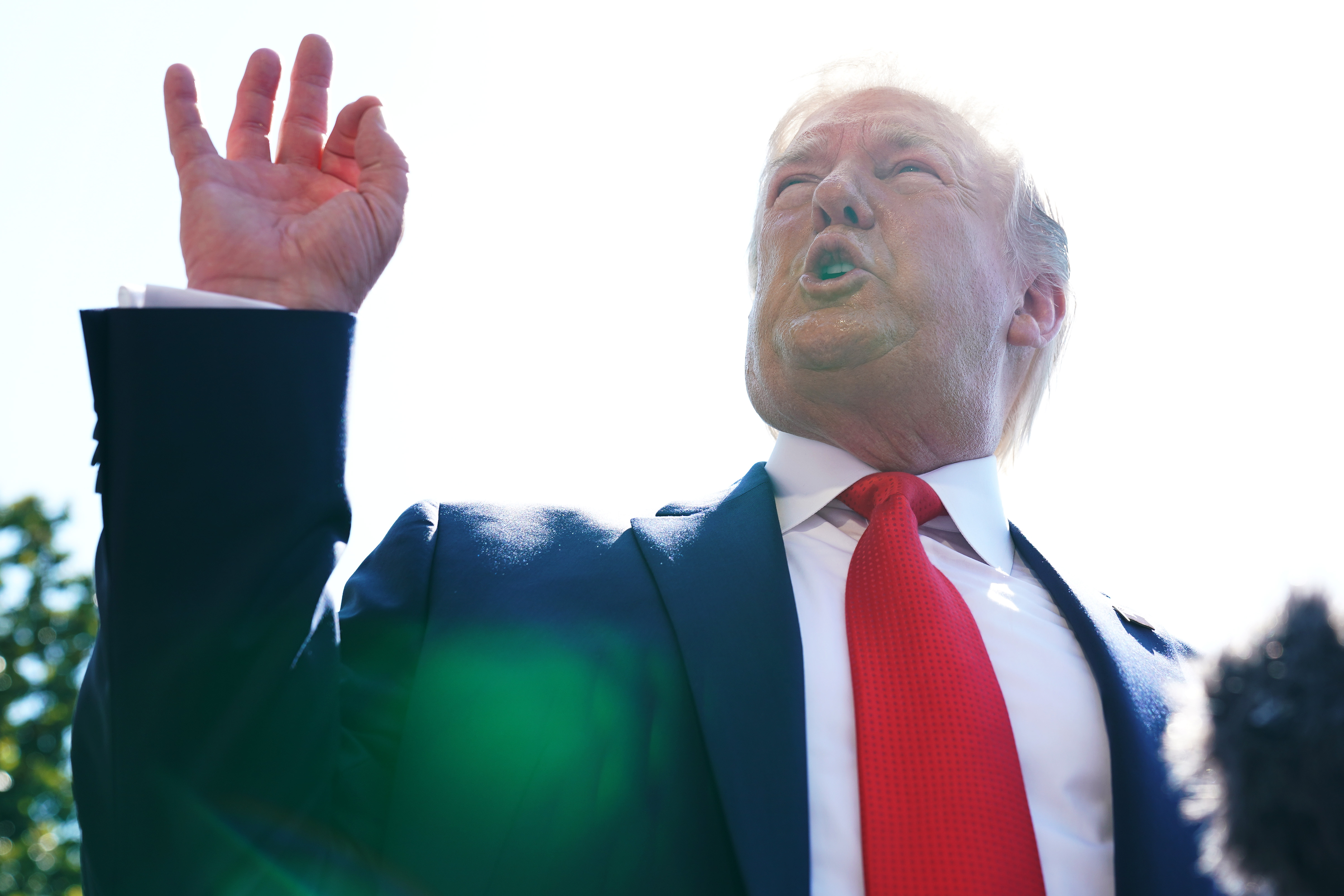Is this economy really as good as it gets?
Jobs figures look good, so why do so many Americans still feel so bad?

A free daily email with the biggest news stories of the day – and the best features from TheWeek.com
You are now subscribed
Your newsletter sign-up was successful
The smartest insight and analysis, from all perspectives, rounded up from around the web:
"The best economy ever" — according to President Trump — seems to still be humming, said Reade Pickert and Jeff Kearns at Bloomberg. The U.S. added 224,000 jobs in June, the most since January, surprising economists after a disappointing May. Trade uncertainty and a global slowdown has not halted the country's economic expansion. Gains in manufacturing were the strongest in five months. Trump lost no time in boasting about the numbers, tweeting "JOBS, JOBS, JOBS!" Indeed, the headline jobs figures might put immediate fears of a recession to rest, said Neil Irwin at The New York Times, but many details paint a gloomier picture: "The progress toward creating an economy that works for more Americans has stalled." Earnings growth has slowed, and the number of employed prime-age workers is dropping. In other words, "employers don't seem to be bidding up the wages to get workers."
Many Americans are still wondering, "Where is this boom?" said Heather Long at The Washington Post. This is a "two-tier recovery," in which 60 percent of Americans have benefited while 40 percent "have seen paltry or volatile wage growth, rising expenses for housing, health care, and education, and increased levels of personal debt." Sommer Johnson is in that latter group. "She was engaged, working full time, and doing well in online college classes when her fiancé's mother died," leading to a cascade of expenses that "left her struggling to pay her bills." "From where I sit," Johnson said, "this doesn't look like 'the best economy ever.'" Trump inherited a recovery from President Obama, said Rick Newman at Yahoo, and it has actually slowed since Obama's presidency. In 2014, when employment growth peaked, the economy created 251,000 jobs per month. This year, the average has been 172,000.
The Week
Escape your echo chamber. Get the facts behind the news, plus analysis from multiple perspectives.

Sign up for The Week's Free Newsletters
From our morning news briefing to a weekly Good News Newsletter, get the best of The Week delivered directly to your inbox.
From our morning news briefing to a weekly Good News Newsletter, get the best of The Week delivered directly to your inbox.
When Democrats talk about the economy, suddenly "job numbers and other economic evidence are fake news," said The Wall Street Journal in an editorial. In reality, "wages are rising at the fastest rate in a decade for lower-skilled workers, and unemployment among less-educated Americans and minorities is near-record low." Among blacks, unemployment has fallen at twice the rate it has among whites. The "paradox of the Barack Obama economy" is that it was fueled by near-zero interest rates that drove up asset values that helped the wealthy, while punishing regulations bred such uncertainty that "businesses pulled back on investing in equipment, buildings, and workers."
So why don't these good times feel so good? asked The New York Times in an editorial. Truck drivers, for instance, are still earning less in 2018 than they were in 2009, while executive compensation keeps soaring. The government could also have used this booming period of economic growth to invest in "public universities, highways, fundamental scientific research, and satellite networks." Instead, this administration "handed out tax cuts" that companies have used to pay out profits to investors. Most of the benefits of the longest expansion in modern American history "have been claimed by a small minority of the population."
A free daily email with the biggest news stories of the day – and the best features from TheWeek.com